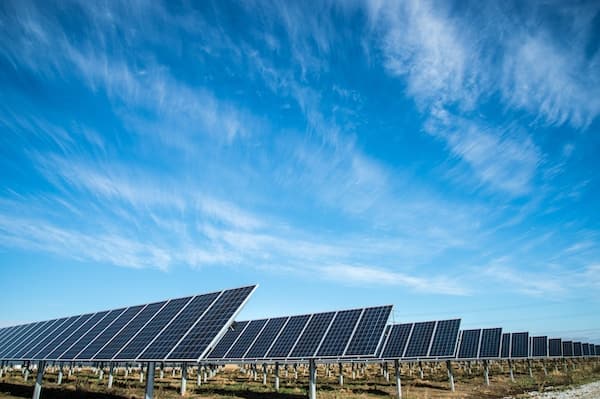Tech Tips
Why Give Your Home Solar Panels
In a time of increasing environmental awareness and a growing emphasis on sustainable living, solar panels have emerged as a game-changing technology. These photovoltaic marvels have the ability to harness the sun’s abundant energy and convert it into clean, renewable power. As the world searches for alternative energy sources to fight back against climate change and reduce dependency on fossil fuels, solar solutions have risen to the forefront as a practical and environmentally friendly option for homeowners. Still not sure this is the right move for you? Discover some compelling reasons to take the dive and make your home a solar-paneled one.

The Need for Solar Solutions
With conventional energy sources like coal, oil, and natural gas causing significant environmental harm, including air pollution and greenhouse gas emissions, there is an urgent need to transition towards cleaner energy alternatives. Solar power offers a compelling solution, as it is inherently emissions-free and does not produce harmful pollutants. By investing in solar panels, homeowners can significantly reduce their carbon footprint – this much is known, but just how do solar panels work? A quick chat with an expert or a read of a thorough blog created by them will tell you all you need to know when you are curious about how they work, what you can do when you are not at home using the energy, and how much they can generate per day.
Advantages Of Solar Panels – Why Invest In Them?
Renewable Energy Source
First of all, the sun is an infinite source of energy, making solar power an entirely renewable and sustainable resource. As long as the sun keeps on shining, solar panels will continue to produce electricity, which helps alleviate the pressure on finite fossil fuel reserves.
Reduced Electricity Bills
By generating their own electricity, homeowners can substantially cut down on their electricity bills. This will depend on how many solar panels you decide to install and how much sunlight is received. You can contact an expert firm in solar in California for advice on this, as well as local companies. They can assess your property, your local weather, and other factors to make sure solar is a viable option for you. Some homeowners may even achieve a net-zero energy bill, where their energy production equals their consumption.
Energy Independence
Solar panels can empower homeowners with a degree of energy independence, as they are no longer solely reliant on energy providers. This can be particularly valuable in remote areas or during power outages, as solar panels can continue producing electricity provided sufficient sunlight.
Incentives and Rebates
Many governments and local authorities offer incentives, tax credits, and rebates, all in an effort to encourage the adoption of solar energy. These financial benefits can significantly reduce the upfront costs of installing solar panels, making them even more attractive to homeowners. Plus, if you choose Atmos for your solar loan then you can get lower monthly payments compared to other suppliers as well as the full costs of the project covered, helping you to save even more in the long run.
Long-Term Investment
Solar panels are known for their durability and longevity. Most solar panels come with 20 to 25 years warranties, and many continue to function effectively even after their warranty period expires. This makes solar panels a long-term investment that pays for itself over time. For instance, solar companies in pennsylvania (or one in your locality) can assist homeowners in evaluating their energy requirements, designing and installing efficient solar systems, guiding them through incentives and rebates, and ensuring long-term performance to maximize both savings and environmental benefits.
Easy Installation and Maintenance
Installing solar panels is quite easy. It typically involves an initial assessment of the home’s location, roof orientation, and shading to determine the best positioning for maximum sunlight exposure. Professional installers from a solar power Sunshine Coast Qld – or those in your local state – will mount the solar panels securely onto the roof and connect them to the home’s electrical system. The process is relatively non-intrusive and can often be completed within a few days.
Once installed, solar panels require minimal maintenance. Periodic cleaning to remove dust and debris and a regular check-up of the system’s performance is generally all that is needed. Remember, solar panels are designed to withstand various weather conditions, and most come with monitoring systems to detect any issues promptly.





